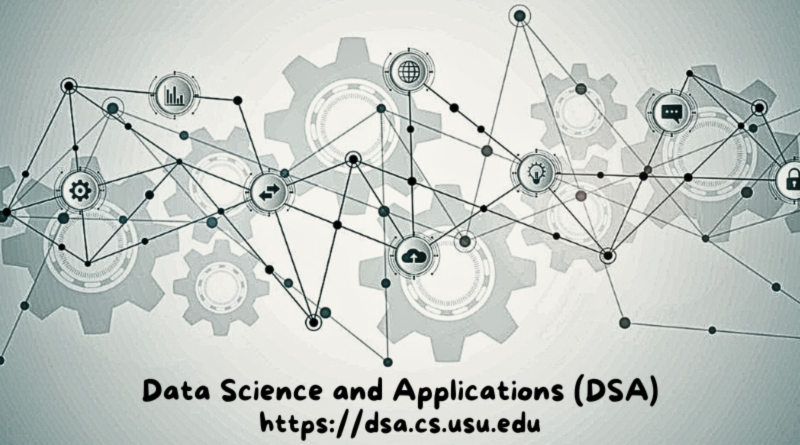Background
I completed my Ph.D. in Computer Science at Michigan State University (MSU) in 2021, with my
primary research focus on artificial intelligence (AI) for social good. During my doctoral
studies, I explored several intriguing areas, such as AI in education, computational
politics, and misinformation detection. As a member of the interdisciplinary Teachers in
Social Media project, I concentrated on creating innovative and efficient data mining and
machine learning algorithms to enhance the quality of PK-12 education.
Throughout my academic journey, I have been honored with multiple awards. These include the
Best Paper Award at the IEEE-ACM International Conference on Advances in Social Networks
Analysis and Mining (ASONAM 2018), the Outstanding Graduate Student Service Award (2019),
the Dissertation Completion Award (2020), and the International Faculty Recognition Award at
Utah State University (2022).
In August 2021, I joined Utah State University as an Assistant Professor (tenure-track) in
Computer Science (now School of Computing), where I now lead the Data Science and Applications lab.
For more information about me, please refer to my Curriculum Vitae
Teaching
-
CS 5840/CS 6840 Social Network Analysis (recently renamed to "Graph Mining") (Fall semester). This course provides an introduction to social network analysis, with a focus on graph theory, online social networks, and network analysis techniques. Students will learn to apply their data analysis skills to social media data in order to uncover meaningful patterns. Emphasizing research-driven learning, the course aims to enhance students' critical thinking abilities and provide them with valuable research experience. Participants will gain hands-on experience using programming languages such as Python and tools like NetworkX to analyze social networks. The course addresses key questions, such as how to collect data from social media platforms like Twitter, identifying the most important actors in a social network, understanding information diffusion within a network, detecting communities in a social network, and measuring assortativity or social similarity. Topics covered include graph essentials, network measures, network models, community analysis, information diffusion, influence, and homophily. Coursework consists of assignments, a mid-term exam, and a final project.
Syllabus -
CS 5890/CS 6890 Introduction to Data Analysis (Spring semester). This course is designed for senior undergraduate students and graduate students who seek hands-on experience in applying computational techniques to address big data analysis challenges. The course covers a wide range of topics, providing students with the opportunity to familiarize themselves with essential tools and techniques required for executing a data analysis project. Topics encompass data representation, data collection, data storage, data preprocessing, data summarization, predictive modeling, clustering, and anomaly detection. Students will gain practical experience using programming languages such as Python and libraries like Pandas and scikit-learn for various data analysis tasks. The coursework comprises assignments, a mid-term exam, and a final project, enabling students to develop a well-rounded understanding of the subject matter.
Syllabus -
CS 5050 Advanced Algorithms (Fall semester). This course offers an in-depth examination of algorithmic techniques and their analytical evaluation, fo- cusing on the mathematical assessment of average-case complexity. It covers foundational algorithms in sorting, graph theory, number theory, and heuristic optimization. Students will derive upper and lower computational bounds, which will serve as valuable tools for guiding algorithmic design choices. Key learning objectives include mastering the application of heuristic and approximate solutions to NP-hard problems and employing problem-reduction strategies for establishing lower bounds and problem-solving. The curriculum may encompass a range of topics, such as inductive design methodologies, algorithms tar- geting sequences and sets, specialized graph and geometric algorithms, algebraic algorithmic approaches, problem reductions, the theory of NP-completeness, and parallel computing algorithms.
Syllabus
External Funding
| Title | Duration | Role | Source | Amount |
|---|---|---|---|---|
| Learning Analytics for Process-driven Computer Programming Assignments | 10/2023-09/2026 | (Sole) Principal Investigator | National Science Foundation | $349,847 |
| Collaborative Research: BPE Track 2: Disability DCL - Capturing Narratives that Characterize Neurodivergent Strengths and Weaknesses | 07/2023-06/2026 | Co-Principal Investigator | National Science Foundation | $373,508 |
| A Smart Toolkit for Knowledge Brokers to Visualize Social Opportunity Spaces | 11/2021-10/2024 | Technical Investigator | The Bill and Melinda Gates Foundation | $74,000 (Total: $2M) |
